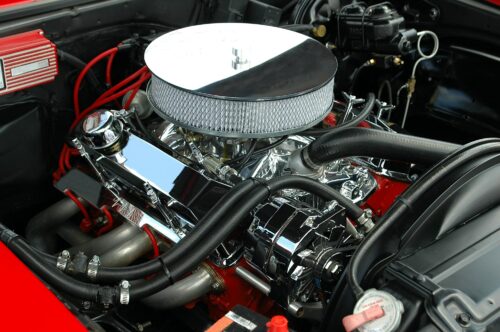 A car’s battery is a vital component of the vehicle’s operations. It plays various roles, including starting the engine and powering the vehicle’s electrical components and systems. Proper car battery maintenance is essential to ensure reliable performance and a long-lasting experience with your vehicle.
A car’s battery is a vital component of the vehicle’s operations. It plays various roles, including starting the engine and powering the vehicle’s electrical components and systems. Proper car battery maintenance is essential to ensure reliable performance and a long-lasting experience with your vehicle.
In this article, we will share tips from our expert technicians on how to keep your car’s battery in optimal condition. Following these guidelines will prolong your battery’s lifespan and maintain its efficiency, so you enjoy a worry-free driving experience.
Regular Inspection and Cleaning
Carrying out regular inspections makes it easier to identify any signs of corrosion, leaks, or physical damage and allows you to address problems before they happen. During inspections, you should pay close attention to the battery terminals and check for any accumulation of dirt or corrosion which could interfere with the electrical connections of your vehicle.
To clean the battery terminals, create a mixture of baking soda and water and use a wire brush or toothbrush to gently wipe the terminals. Battery acid is dangerous if it comes into contact with your skin, so you should be cautious and use protective hand gloves. Rinse the terminals with water when you are done, and only connect the battery when the terminals are completely dry.
Secure the Battery
Ensure your battery is fastened in place in its designated location using the appropriate mounting brackets and straps. This simple step will prevent lots of unnecessary battery damage and ensure a stable electrical connection since a loose battery will most likely lead to unwanted vibrations, which could cause damage to itself or other internal components.
Avoid Parasitic Drain
Parasitic drain occurs when you leave electrical components, like lights or air conditioning systems, turned on while the engine, which charges the battery, is off. Parasitic drain causes a reduction in the battery’s life over time.
To prevent parasitic drains, always double-check and ensure the lights and accessories in your vehicle are turned off before exiting the vehicle. You should also disconnect the battery or use a battery maintainer if you know the car will be parked and left idle for an extended period of time.
Monitor the Battery Charge
A fully charged battery should have a voltage reading of around 12.4 to 12.6 volts when checked with a multimeter or battery tester. Falling below this range indicates a weak or dying battery, which requires immediate attention or replacement. Constant monitoring allows you to quickly detect and take action to prevent the battery from getting worse.
Schedule Professional Battery Inspections
There is only so much to check on your own. Going to a professional auto repair shop, which has the knowledge and tools to conduct in-depth checks and maintenance, is a good way to ensure a long-lasting battery.
In conclusion, the car battery is crucial to ensuring reliable vehicle performance. This is why car battery maintenance should not be overlooked during routine vehicle maintenance schedules. Regular inspections, avoiding parasitic drain, and monitoring the battery charge will help you catch issues early on and prevent unexpected failures which may leave you stranded.
